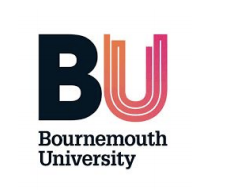CFP Deadline: 3 April 2020
Symposium: 2-3 July 2020
The first Audio Testimonies Symposium, organised in collaboration between Bournemouth University and CRiSAP, will take place at Bournemouth (or possibly online!) on 2-3 July 2020. We invite responses to the following Call for Participation.
Call for Participation
even if narrative cannot document events, or constitute perfect factuality, it can document the actuality of writer and text. The writer and his link to events may thus be reified not in the writer’s words but in the writing activity that brought words to the page..
Young, J. E. (1988). Writing and Rewriting the Holocaust: Narrative and the Consequences of Interpretation. Indiana University Press.
This symposium considers the place of Audio Testimony in artistic practice, and will explore the ways in which artists use sound to enable new forms of testimony, and create new artistic configurations, which engage public consciousness. It aims to open a discussion on this topic and form the start of a network which will continue exploration of these themes. It will do so through a day of presentations focusing on particular works and via a social activity of collectively making audio testimony.
Position statements are encouraged in, but by no means limited to, the following areas and on the following questions:
● In what ways is Young’s quote true for audio testimony, and how do the differing potentials of field recording, music and speech create new relationships between facts and acts?
● Sound unfolds in time from an event, creating a listening that is understood as relational and contingent, situated and reflexive. In what way does audio testimony allow a more reflexive engagement with histories?
● The source or motivation for making testimony - What causes the sound to be made and the testimony to be given? What is the relationship between testimonies and truth; sound as witness? How can we include the diversity of non-human witnesses or witnesses that are no longer present?
● The imagined, hoped for, and potential consequences of the testimony - What consequences may flow from the making of the work?
● How do the different modes of testimony affect the kind of cultural discourse that it invokes and participates in?
● What is the relationship of the maker of the work to the people/materials that are testifying, and what form does the work take (both as an ongoing process and as a final form)?
● To what extent does the testimony alter, question or pose difficulties for the mode of artistic representation?
Practical Information
We welcome anybody working with testimony to apply by submitting a position statement indicating the ways in which your interest relates to the call. Participants will give lightning presentations (of 5-minutes) of their different perspectives at the start of the workshop to encourage a sharing from academics, practitioners and professionals of all disciplines. The deadline for submission of proposals is Midnight, Friday 3rd April, 2020. Submissions should take the form of an abstract of a maximum 300 words in length, submitted as a MS Word document to audiotestimonies@gmail.com. Please note that places are limited for this symposium.
Please note that due to limited places on the workshop, position statements will be used by members of Emerge and CRiSAP to select attendees.
Successful participants will be notified by 1 May 2020.
Description of the symposium
During Day 1, and after the completion of the keynote speech and participant presentations, an intensive workshop will take place. In this activity, participants will be asked to give -and work with- a personal testimony. (If needed, technical support in the form of a recording kit will be provided, together with access to music technology labs for audio editing).
On Day 2, participants will present the result of the workshop activity, and a discussion will follow.
There will be a £10 fee for attendance that will cover coffee/tea and lunch for both days. Unfortunately the organisers cannot cover travel or accommodation for participants.
- -
With the support of Emerge - Experimental Media Research Centre at BU
Part of CRiSAP's forthcoming festival Un-Earthed: A festival of listening and environment. A critical celebration of our relationships with the environments that we share with other people and with other species.


